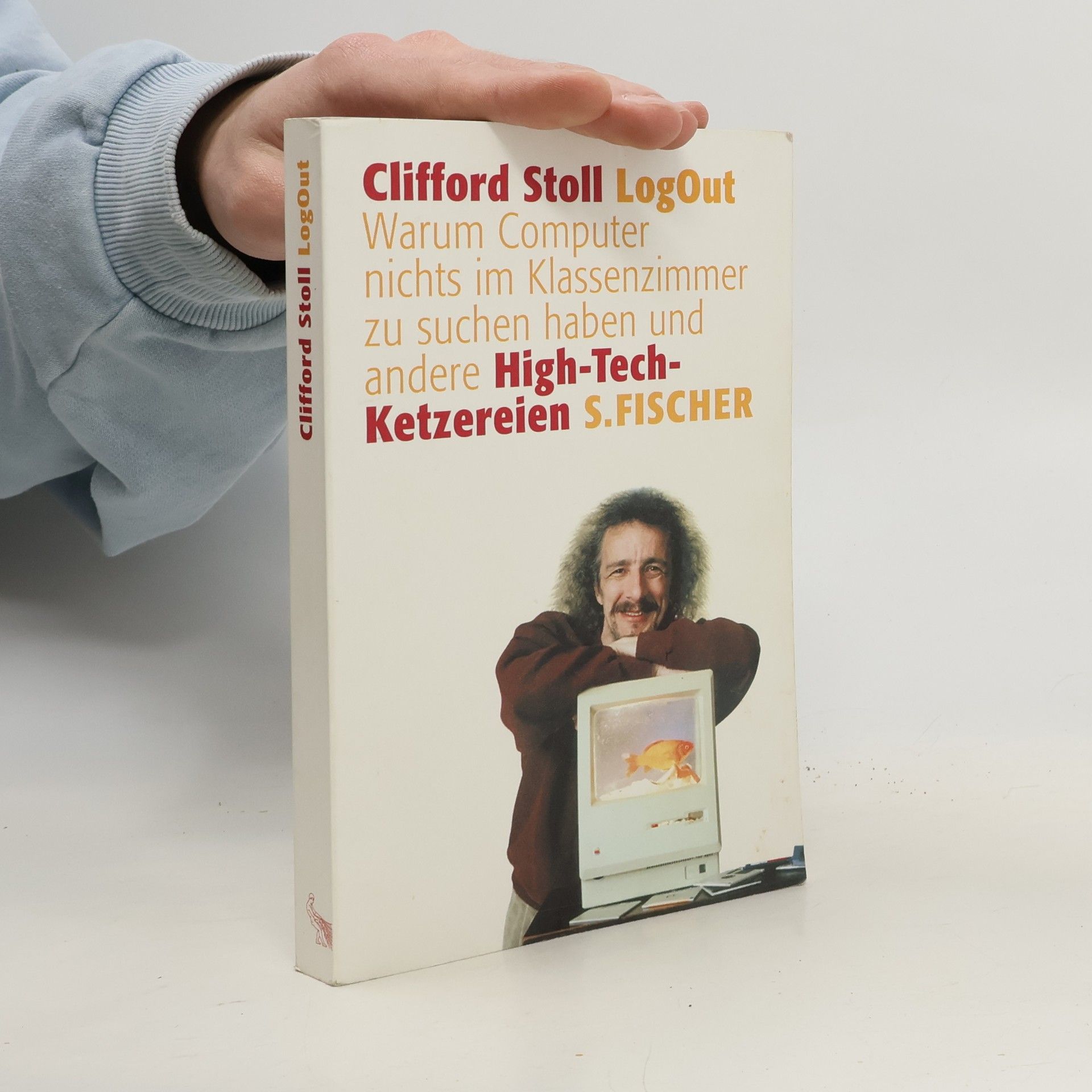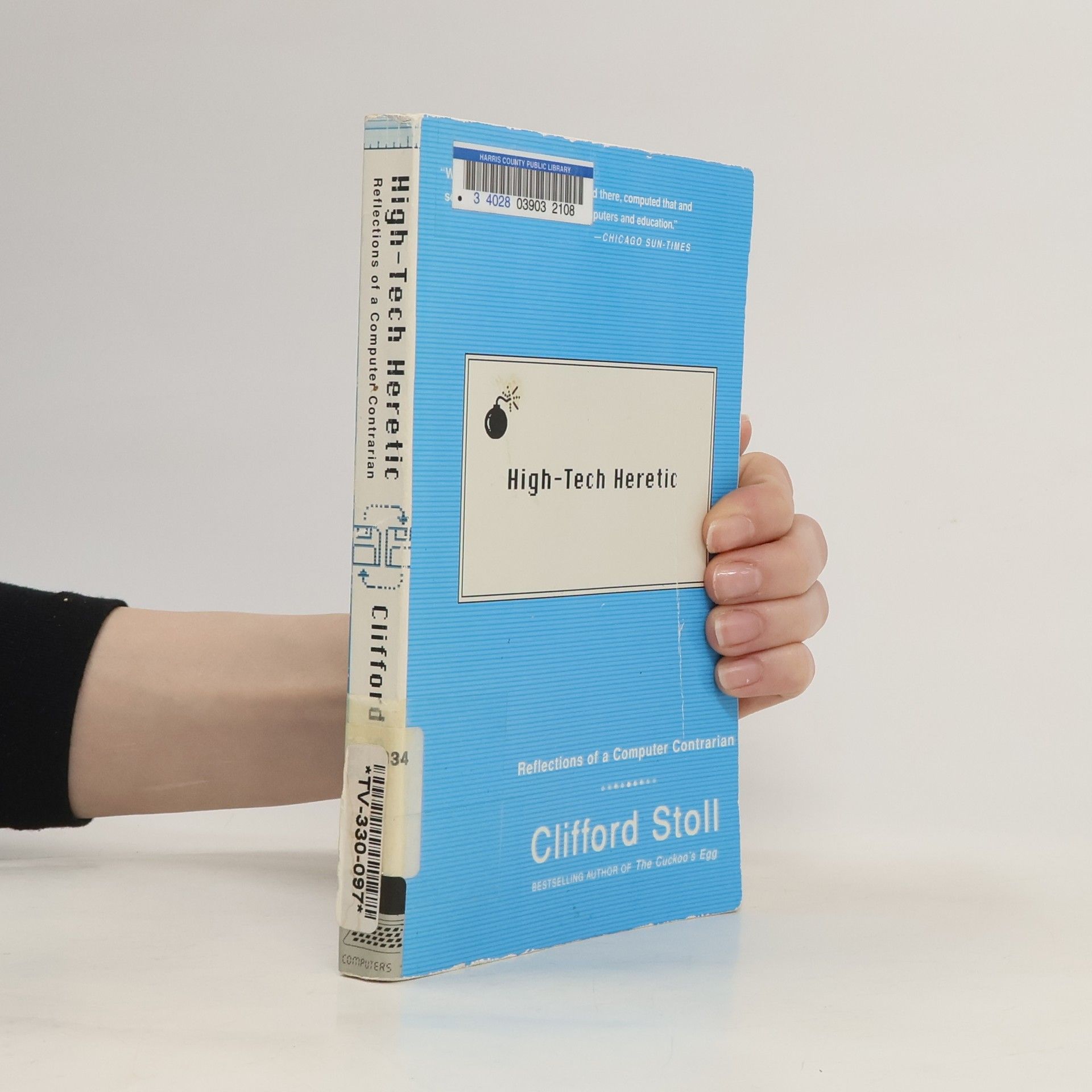Známá kniha, ve které autor popisuje pravdivé události, které se mu staly, když neznámý útočník napadl velké servery v Berkley. Kniha připomíná detektivní román a je psána velmi čtivou formou. Popisuje honbu za neznámým kyberzločincem. Z recenzí : Detektivka počítačového věku, která okamžitě nadchne počítačovou generaci a překvapivě strhne i nás ostatní (Smithsonian). I ty, kteří nechápou rozdíl mezi bajtem a bagetou strhne Kukaččí vejce hned na první straně a uchvátí je jako nejlepší detektivka (Cosmopolitan). Mohla by to být sci-fi, kdyby to nebyl pravdivý příběh a mohl by to být špionážní román, kdyby se to skutečně nestalo (Willam Press, profesor na Harwardu)
Clifford Stoll Knihy
Cliff Stoll je autorem, jehož díla často zkoumají složitost technologií a jejich dopad na společnost. Jeho psaní vyniká pronikavým pohledem na digitální svět a jeho často neviditelné mechanismy. Čtenáři ocení jeho schopnost převést komplexní technické koncepty do poutavého a srozumitelného vyprávění. Jeho práce podněcuje k zamyšlení nad tím, jak technologie formuje naše životy a vztahy.





Silicon Snake Oil
- 247 stránek
- 9 hodin čtení
In Silicon Snake Oil , Clifford Stoll, the best-selling author of The Cuckoo's Egg and one of the pioneers of the Internet, turns his attention to the much-heralded information highway, revealing that it is not all it's cracked up to be. Yes, the Internet provides access to plenty of services, but useful information is virtually impossible to find and difficult to access. Is being on-line truly useful? "Few aspects of daily life require computers...They're irrelevant to cooking, driving, visiting, negotiating, eating, hiking, dancing, speaking, and gossiping. You don't need a computer to...recite a poem or say a prayer." Computers can't, Stoll claims, provide a richer or better life.A cautionary tale about today's media darling, Silicon Snake Oil has sparked intense debate across the country about the merits--and foibles--of what's been touted as the entranceway to our future.
High-Tech Heretic
- 240 stránek
- 9 hodin čtení
The cry for and against computers in the classroom is a topic of concern to parents, educators, and communities everywhere. Now, from a Silicon Valley hero and bestselling technology writer comes a pointed critique of the hype surrounding computers and their real benefits, especially in education. In High-Tech Heretic, Clifford Stoll questions the relentless drumbeat for "computer literacy" by educators and the computer industry, particularly since most people just use computers for word processing and games--and computers become outmoded or obsolete much sooner than new textbooks or a good teacher. As one who loves computers as much as he disdains the inflated promises made on their behalf, Stoll offers a commonsense look at how we can make a technological world better suited for people, instead of making people better suited to using machines.
LogOut
- 252 stránek
- 9 hodin čtení
Müssen Klassenzimmer tatsächlich verkabelt sein, damit unsere Kinder sich in der Welt zurechtfinden? Können Computer gute Lehrer ersetzen? Werden wir bald nur noch mailen, statt von Angesicht zu Angesicht zu kommunizieren? Wie interaktiv ist das Internet wirklich? Mit einer gehörigen Portion Aufsässigkeit geht Clifford Stoll diesen Fragen nach und scheut auch vor provokanten Thesen nicht zurück. Clifford Stolls neues Buch ist ein ebenso kritischer wie unterhaltender Beitrag zu einer Diskussion, in der unüberlegter Optimismus weitverbreitet ist.
Die Wüste Internet
- 345 stránek
- 13 hodin čtení
Die schlechte Nachricht dieses Buchs lautet: So wunderbar, wie sie uns versprochen wurde, ist die schöne neue Welt des Internet gar nicht. Die gute Nachricht lautet - ebenso.§Es ist nur gut, wenn die Euphorie um die Datenautobahn ein wenig gedämpft wird.§Clifford Stoll, einer der Pioniere des Internet, hält den Online-Gläubigen den Spiegel vor - mit Sachkenntnis, Anschaulichkeit und trockenem Witz.